Filter by
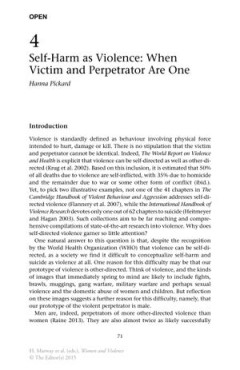
Self-Harm As Violence: When Victim and Perpetrator Are One
This edited collection explores the agency of women who do violence and have violence done to them. Topics covered include rape, pornography, prostitution, suicide bombing and domestic violence. The volume contributes to the philosophical and theoretical debate, as well as offering practical, social and political responses to the issues examined.
- Edition
- -
- ISBN/ISSN
- 9781137015112
- Collation
- -
- Series Title
- -
- Call Number
- 320.01 MAR s

Retirement Home? Ageing Migrant Workers in France and the Question of Return
Introduction This open access book offers new insights into the ageing-migration nexus and the nature of home. Documenting the hidden world of France’s migrant worker hostels, it explores why older North and West African men continue to live past retirement age in this sub-standard housing. Conventional wisdom holds that at retirement labour migrants ought to instead return to their families …
- Edition
- -
- ISBN/ISSN
- 9783319649764
- Collation
- -
- Series Title
- -
- Call Number
- 301 HUN r
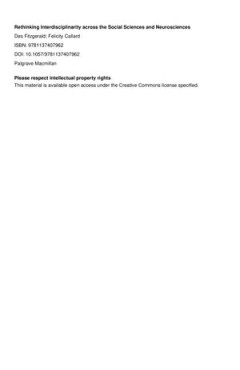
Rethinking Interdisciplinarity across the Social Sciences and Neurosciences
This book offers a provocative account of interdisciplinary research across the neurosciences, social sciences and humanities. Setting itself against standard accounts of interdisciplinary 'integration,' and rooting itself in the authors' own experiences, the book establishes a radical agenda for collaboration across these disciplines. Rethinking Interdisciplinarity does not merely advocate int…
- Edition
- -
- ISBN/ISSN
- 9781137407955
- Collation
- -
- Series Title
- -
- Call Number
- 306.4 CAL r

Research, Ethics and Risk in the Authoritarian Field
research ethics; authoritarian countries; research methodology; research in the authoritarian field; risk and field research; ethics and field research; authoritarianism; advice for field research; research transparency; research methods; mental impact of field research; planning for field research; dangers of field research
- Edition
- -
- ISBN/ISSN
- 9783319689654
- Collation
- -
- Series Title
- -
- Call Number
- 320.01 GLA r

Punishing The Criminal Corpse, 1700-1840: Aggravated Forms of The Death Penal…
history of crime; medical humanities; capital punishment
- Edition
- -
- ISBN/ISSN
- 9781137513601
- Collation
- -
- Series Title
- -
- Call Number
- 364 KIN p
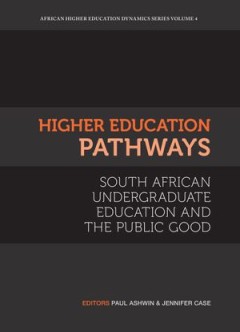
Higher Education Pathways : South African Undergraduate Education and the Pub…
"In what ways does access to undergraduate education have a transformative impact on people and societies? What conditions are required for this impact to occur? What are the pathways from an undergraduate education to the public good, including inclusive economic development? These questions have particular resonance in the South African higher education context, which is attempting to tackle …
- Edition
- -
- ISBN/ISSN
- 978-1-928331-91-9
- Collation
- -
- Series Title
- -
- Call Number
- 378.154 2 HIG
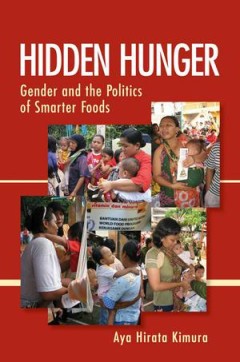
Hidden Hunger : Gender and the Politics of Smarter Foods
For decades, NGOs targeting world hunger focused on ensuring that adequate quantities of food were being sent to those in need. In the 1990s, the international food policy community turned its focus to the “hidden hunger” of micronutrient deficiencies, a problem that resulted in two scientific solutions: fortification, the addition of nutrients to processed foods, and biofortification, the …
- Edition
- -
- ISBN/ISSN
- 9780801467684
- Collation
- -
- Series Title
- -
- Call Number
- 361.05 KIM h
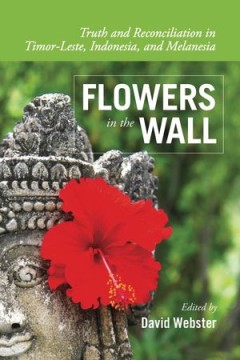
Flowers in the Wall: Truth and Reconciliation in Timor-Leste, Indonesia, and …
What is the experience of truth and reconciliation? What is the purpose of a truth commission? What lessons can be learned from established truth and reconciliation processes? Flowers in the Wall explores the experience of truth and reconciliation Southeast Asia and the Southwest Pacific, with and without a formal truth commission. Although much has been written about the operational phases of …
- Edition
- -
- ISBN/ISSN
- 9781552389553
- Collation
- -
- Series Title
- -
- Call Number
- 300
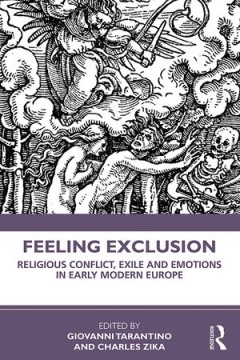
Feeling Exclusion : Religious Conflict, Exile and Emotions in Early Modern Eu…
Feeling Exclusion: Religious Conflict, Exile and Emotions in Early Modern Europe investigates the emotional experience of exclusion at the heart of the religious life of persecuted and exiled individuals and communities in early modern Europe. Between the late fifteenth and early eighteenth centuries an unprecedented number of people in Europe were forced to flee their native lands and live …
- Edition
- -
- ISBN/ISSN
- 9781000708424
- Collation
- -
- Series Title
- -
- Call Number
- 300
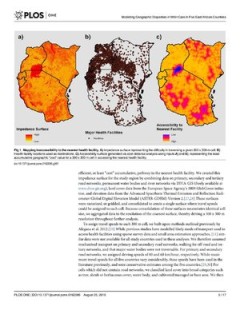
Equality in Maternal and Newborn Health: Modelling Geographic Disparities in …
Geographic accessibility to health facilities represents a fundamental barrier to utilisation of maternal and newborn health (MNH) services, driving historically hidden spatial pockets of localized inequalities. Here, we examine utilisation of MNH care as an emergent property of accessibility, highlighting high-resolution spatial heterogeneity and sub-national inequalities in receiving care bef…
- Edition
- -
- ISBN/ISSN
- -
- Collation
- -
- Series Title
- -
- Call Number
- 300
 Computer Science, Information & General Works
Computer Science, Information & General Works  Philosophy & Psychology
Philosophy & Psychology  Religion
Religion  Social Sciences
Social Sciences  Language
Language  Pure Science
Pure Science  Applied Sciences
Applied Sciences  Art & Recreation
Art & Recreation  Literature
Literature  History & Geography
History & Geography